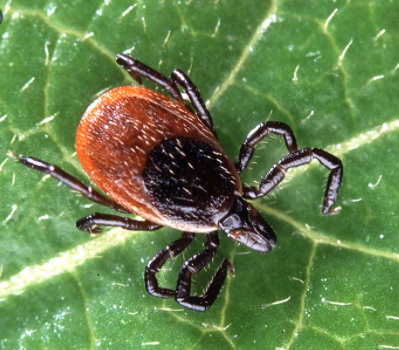THUNDER BAY — Doctors in the Thunder Bay district must now report to the local medical officer of health any cases of three more diseases that can be transmitted by ticks.
The Ministry of Health already required Ontario doctors to report cases of Lyme disease.
As of July 1, the same requirement came into effect for the Powassan virus, anaplasmosis, and babesiosis.
Blacklegged ticks, also known as deer ticks, are capable of transmitting all four diseases to humans.
Matt Bradica, a public health inspector at the Thunder Bay District Health Unit, said the province decided it was time to ramp up the monitoring of tick-borne illnesses because of a trend it was seeing in the United States.
"Lyme disease cases have been followed by a wave of anaplasmosis, babesiosis and Powassan virus cases. This started in the mid-eastern U.S., then it slowly crept up to the northeast. It seems like these diseases are in the footsteps of an increase in Lyme disease cases."
Bradica said health experts expect the risk that people in Ontario will contract these diseases will also grow in the coming years.
"We're kind of on the precipice of being affected by these diseases in a more significant way, based on our observations of what's happening in the U.S."
Climate change is already believed to have improved the ability of blacklegged ticks to survive the winter in areas such as Thunder Bay and to establish breeding populations.
Up until now, cases of Powassan, anaplasmosis or babesiosis have not been officially reported in Ontario but there have been some anecdotal reports.
"We can now count and track when these illnesses are occurring, map it for a risk map and be able to inform the public when these diseases become more prevalent," Ontario Chief Medical Officer of Health Dr. Kieran Moore told the Canadian Press.
According to the U.S. Centers for Disease Control, although there's no specific treatment for Powassan virus, the other two can be treated with antibiotics.
There's a wide range of symptoms, but flu-like symptoms (headaches, fever, chills) are the most common signs that someone has contracted any of the four diseases that can be passed on by blacklegged ticks.
While Ontario ramps up the tracking of these illnesses, Bradica said local residents should continue to remain vigilant for blacklegged ticks after venturing outdoors, and should take steps to protect themselves when venturing into areas with long grass or shrubs which ticks are prone to inhabit.
Insect repellant containing DEET or icaridin is recommended.
"All the same strategies that we've been talking about for years for Lyme disease apply to these other diseases. To prevent tick bites...wear long pants, longsleeved shirts, clothing that's light in colour so you can spot ticks more easily. It's also a good idea to tuck your pantlegs into your socks, and your shirt into your pants."
Bradica said people are advised to check their body thoroughly for ticks, including hard-to-see areas such as the groin, armpits and scalp.
